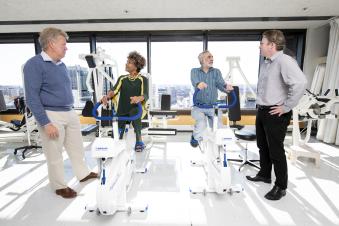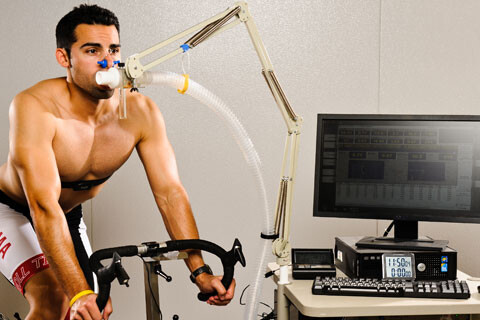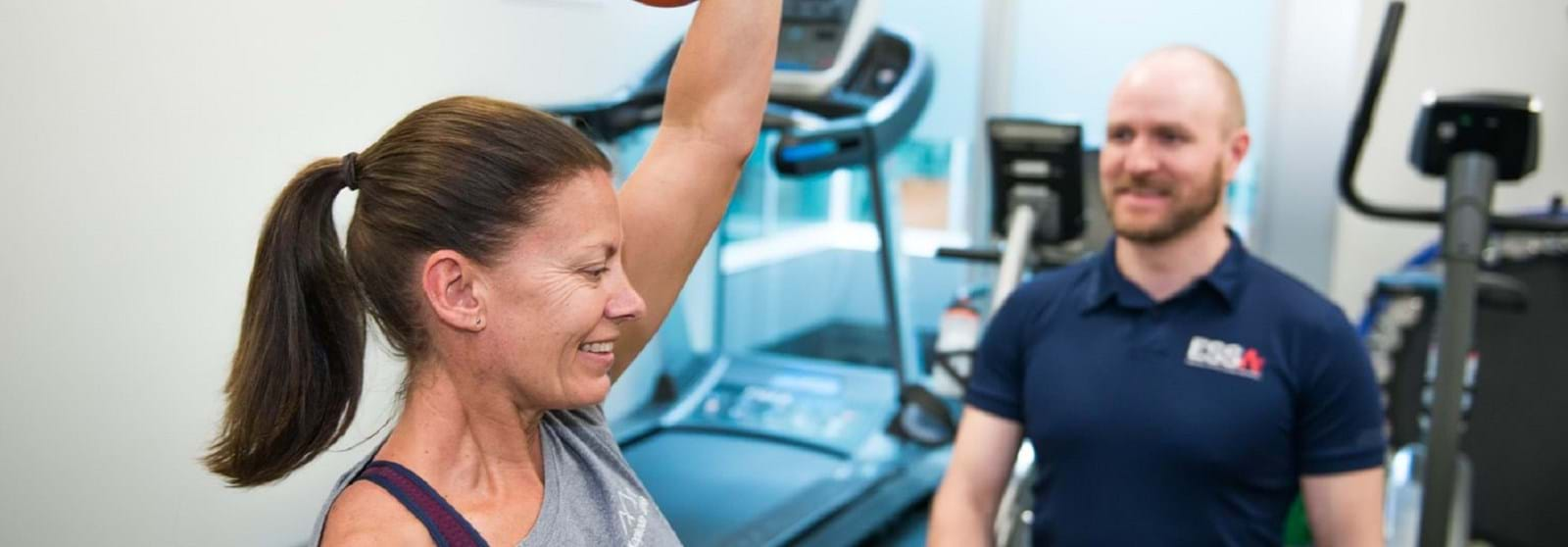Some Known Details About Athletic Training & Exercise Physiology - Academics - MSU


Essentials of Exercise Physiology by William DMcArdle
Some Ideas on Nutrition and Exercise Physiology Degree Program - Elson S You Should Know
A male marathon runner loses each hour around 0. 83 L in cool weather and 1. 2 L in warm (losses in females are about 68 to 73% lower). Individuals doing heavy exercise may lose 2 and half times as much fluid in sweat as urine. Learn More Here can have extensive physiological results.
These impacts are mostly gotten rid of by changing 50 to 80% of the fluid lost in sweat. Plasma catecholamine concentrations increase 10-fold in whole body workout. Ammonia is produced by exercised skeletal muscles from ADP (the precursor of ATP) by purine nucleotide deamination and amino acid catabolism of myofibrils. interleukin-6 (IL-6) increases in blood circulation due to its release from working skeletal muscles.

Exercise Science vsExercise Physiology - Maryville Online
An Unbiased View of Athletic Training & Exercise Physiology - Academics - MSU
Sodium absorption is impacted by the release of interleukin-6 as this can trigger the secretion of arginine vasopressin which, in turn, can result in exercise-associated precariously low salt levels (hyponatremia). This loss of sodium in blood plasma can lead to swelling of the brain. This can be avoided by awareness of the risk of drinking extreme quantities of fluids throughout prolonged exercise.
The brain is usually reliant for its high energy expense upon aerobic metabolism. The brain as a result is extremely sensitive to failure of its oxygen supply with loss of consciousness taking place within six to 7 seconds, with its EEG going flat in 23 seconds. Therefore, the brain's function would be interfered with if exercise affected its supply of oxygen and glucose.

Encompass Exercise Physiology - Home - Facebook
The 5-Second Trick For Master of Science in Clinical Exercise Physiology
Since people are bipeds, motor control is needed for keeping balance. For this factor, brain energy usage is increased during extreme physical workout due to the needs in the motor cognition needed to manage the body. Exercise Physiologists deal with a variety of neurological conditions including (however not restricted to): Parkinson's, Alzheimer's, Distressing Brain Injury, Spine Injury, Spastic paralysis and mental health conditions.

Throughout submaximal workout, heart output boosts and cerebral blood flow increases beyond the brain's oxygen needs. However, this is not the case for continuous maximal effort: "Maximal exercise is, despite the increase in capillary oxygenation [in the brain], connected with a minimized mitochondrial O2 content during whole body workout" The autoregulation of the brain's blood supply suffers particularly in warm environments Glucose [modify] In adults, workout depletes the plasma glucose available to the brain: short extreme workout (35 min ergometer cycling) can decrease brain glucose uptake by 32%.
